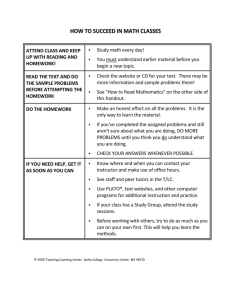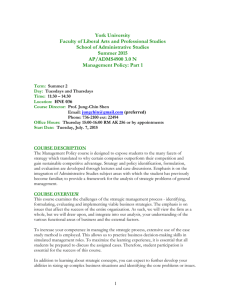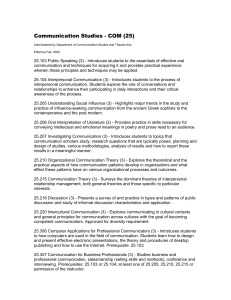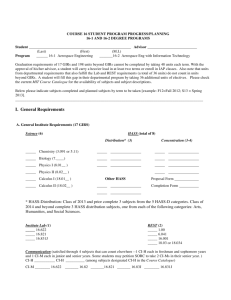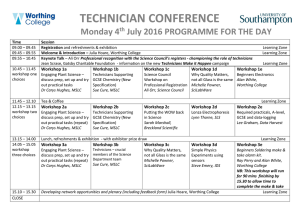MSLC : Advice for Doing Well in Your Classes
advertisement
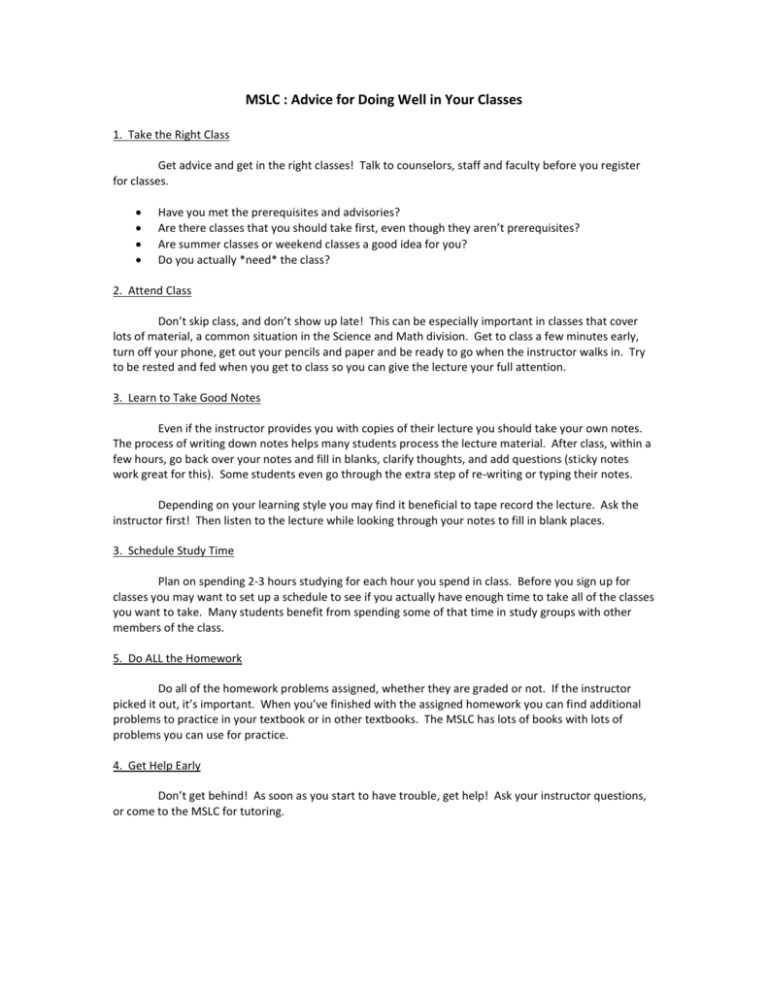
MSLC : Advice for Doing Well in Your Classes 1. Take the Right Class Get advice and get in the right classes! Talk to counselors, staff and faculty before you register for classes. Have you met the prerequisites and advisories? Are there classes that you should take first, even though they aren’t prerequisites? Are summer classes or weekend classes a good idea for you? Do you actually *need* the class? 2. Attend Class Don’t skip class, and don’t show up late! This can be especially important in classes that cover lots of material, a common situation in the Science and Math division. Get to class a few minutes early, turn off your phone, get out your pencils and paper and be ready to go when the instructor walks in. Try to be rested and fed when you get to class so you can give the lecture your full attention. 3. Learn to Take Good Notes Even if the instructor provides you with copies of their lecture you should take your own notes. The process of writing down notes helps many students process the lecture material. After class, within a few hours, go back over your notes and fill in blanks, clarify thoughts, and add questions (sticky notes work great for this). Some students even go through the extra step of re-writing or typing their notes. Depending on your learning style you may find it beneficial to tape record the lecture. Ask the instructor first! Then listen to the lecture while looking through your notes to fill in blank places. 3. Schedule Study Time Plan on spending 2-3 hours studying for each hour you spend in class. Before you sign up for classes you may want to set up a schedule to see if you actually have enough time to take all of the classes you want to take. Many students benefit from spending some of that time in study groups with other members of the class. 5. Do ALL the Homework Do all of the homework problems assigned, whether they are graded or not. If the instructor picked it out, it’s important. When you’ve finished with the assigned homework you can find additional problems to practice in your textbook or in other textbooks. The MSLC has lots of books with lots of problems you can use for practice. 4. Get Help Early Don’t get behind! As soon as you start to have trouble, get help! Ask your instructor questions, or come to the MSLC for tutoring.







